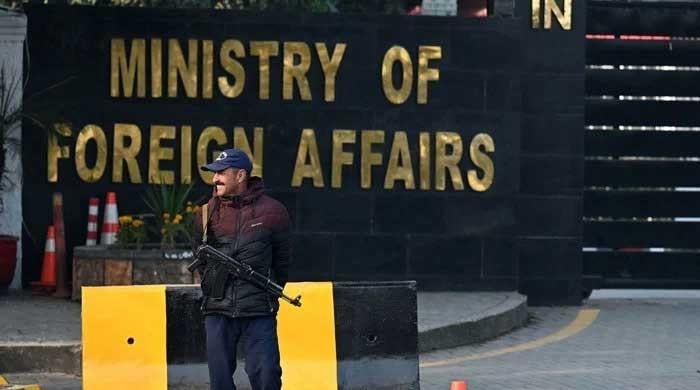
Pakistan Condemns Taliban Border Assault: A Call for a True Representative Afghan Government
In recent developments, Pakistan has expressed serious concerns over a border assault originating from Afghanistan, attributed to the Taliban. The Pakistani Foreign Office has labeled this unprovoked attack as a significant threat to regional stability and security. As the situation unfolds, Pakistan continues to advocate for the establishment of a government in Afghanistan that truly represents the diverse interests and aspirations of its people.
Context of the Border Assault
The border between Pakistan and Afghanistan has a long history of conflict, marked by tensions that stem from political instability within Afghanistan. The recent attack is not an isolated incident; it reflects ongoing discord in the region, exacerbated by the Taliban's return to power in Afghanistan in August 2021. Since then, the Taliban's governance has raised numerous concerns, both domestically and internationally, regarding human rights and the safety of neighboring countries.
The Nature of the Attack
In this specific incident, armed individuals reportedly crossed the border from Afghanistan, launching an assault that targeted Pakistani security forces. Pakistan’s Foreign Office has condemned the attack, emphasizing the need for accountability and urging the Taliban authorities to prevent such incursions in the future. This incident highlights the precarious security situation along the border, which has historically been plagued by militant activity.
Pakistan's Position on Afghan Governance
Pakistan has long been a key player in the Afghan political landscape, often advocating for a stable and inclusive government in Afghanistan. The Pakistani government has reiterated its hope for a "true representative Afghan government," indicating a desire for a political entity that reflects the diversity of Afghanistan's ethnic and cultural groups. The current Taliban regime, while controlling a significant portion of the country, has been criticized for its lack of inclusivity and democratic processes.
Implications of a Representative Government
A truly representative government in Afghanistan could have far-reaching implications for not only Pakistan but also the broader region. Such a government would ideally prioritize peace and stability, reducing the likelihood of cross-border violence and fostering diplomatic relations. Furthermore, it could pave the way for economic cooperation and development initiatives that benefit both nations.
The Role of International Community
The international community has a significant role to play in shaping the future of Afghanistan. Countries around the world have expressed concerns regarding the Taliban's human rights record and its impact on regional stability. Pakistan has urged the global community to engage with Afghanistan constructively, encouraging a political solution that promotes inclusivity and peace.
The Importance of Dialogue
Dialogue between Pakistan and the Taliban is crucial at this juncture. Open channels of communication can help address security concerns and foster a cooperative approach to border management. Pakistan's call for a representative government aligns with the international community's broader goals of promoting democracy and human rights in Afghanistan.
Conclusion
As Pakistan confronts ongoing security challenges stemming from its border with Afghanistan, the need for a stable and inclusive Afghan government has never been more urgent. The recent border assault serves as a reminder of the fragile state of affairs in the region and underscores the importance of diplomatic efforts aimed at fostering peace and stability. Pakistan's hopes for a true representative Afghan government reflect a desire for a harmonious relationship that benefits both nations and contributes to regional security.
Frequently Asked Questions (FAQs)
Q1: What prompted Pakistan to condemn the Taliban's actions?
A1: Pakistan condemned the Taliban's actions due to an unprovoked border assault that targeted its security forces, raising concerns about regional stability.
Q2: What does Pakistan mean by a "true representative Afghan government"?
A2: A "true representative Afghan government" refers to a political system in Afghanistan that includes diverse ethnic and cultural representation, allowing for democratic governance and inclusivity.
Q3: How does the border assault affect Pakistan's security?
A3: The border assault raises significant security concerns for Pakistan, as it indicates potential threats from militant groups operating in Afghanistan that could destabilize the region.
Q4: What role does the international community play in Afghanistan's future?
A4: The international community can influence Afghanistan's future by promoting dialogue, encouraging inclusive governance, and addressing human rights issues to foster peace and stability.
Q5: How can Pakistan and the Taliban improve relations?
A5: Improved relations can be achieved through open dialogue, cooperation on border management, and mutual efforts towards establishing a stable and peaceful political environment in Afghanistan.
Tags
National
